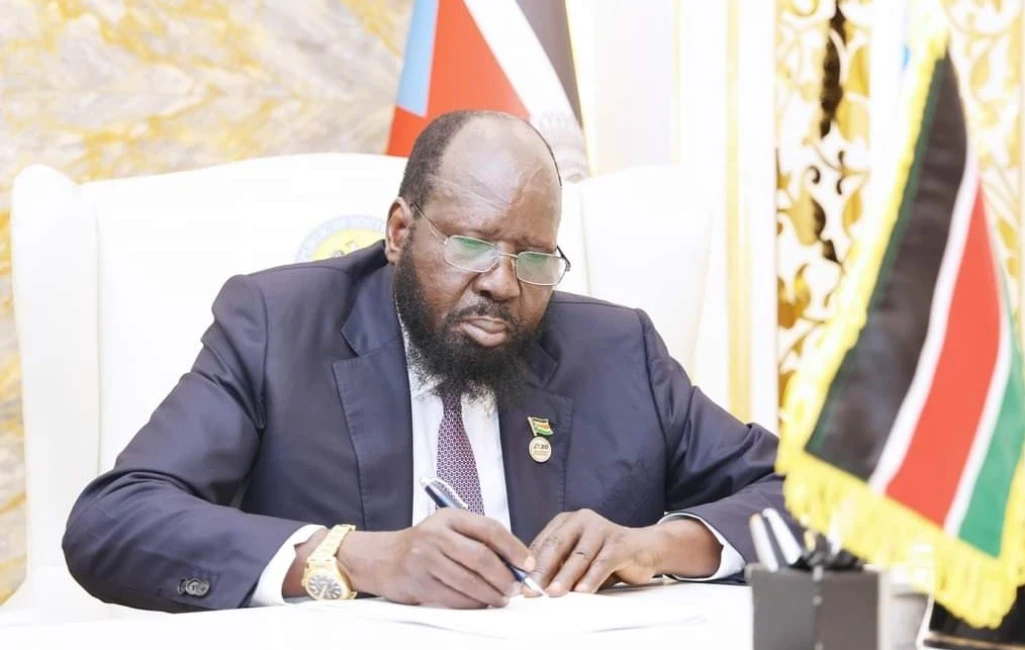
A major
turning point in South Sudan’s continuous reform initiatives has been reached
with President Salva Kiir's official approval of six important pieces of
legislation.
The president
has approved six bills: the Commission for Truth, Reconciliation, and Healing
Act 2024, the Tourism Act 2024, the Public Financial Management and
Accountability Act 2011 (Amended 2024), the National Bureau of Statistics Act,
the Civil Aviation Authority Act 2012 (Amendment Act 2024), and the
Compensation and Reparations Authority Act 2024.
According to
the R-ARCSS, the Commission for Truth, Reconciliation, and Healing (CTRH) will
be created by law and will be tasked with leading initiatives to address the
legacy of conflicts, advance peace, national reconciliation, and healing.
Additionally,
by proposing measures for compensation and reparations, the CTRH will establish
procedures and systems that would allow victims of human rights breaches to
fully enjoy their rights.
Where
applicable, the CTRH will use established customary practices, procedures, and
mechanisms to determine such corrective processes and methods.
The country's
top two houses passed the legislation after lengthy consultations with various stakeholders,
and Justice Minister Ruben Madol, who presented the bills to the president.
According to
CEPO Executive Director Edmund Yakani, transitional justice is a crucial pillar
for creating the framework necessary to implement long-lasting political
transitional processes.
“Our next
call is for the president to accelerate the establishment of the transitional
justice institutions within the month of December 2024 as a gift for
Christmas,” Yakani stated.
He asserted
that it is crucial that the people in charge of overseeing the transitional
justice institutions be impartial and free from corruption, violence, and
violations of human rights.
“The
appointment of the commissioners for CTHR and CRA should undergo serious human
rights due diligence assessment. Representation of persons with disabilities
and women with affirmative action of 35%,” Yakani argued.
“The
appointment of the female commissioners in CTHR should be enforced effectively.
Further meaningful engagement of victims of human rights violations and
protection of witnesses and perpetrators is paramount.”